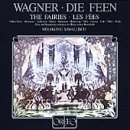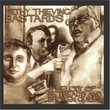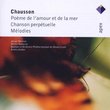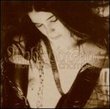Incredible!
12/05/2003
(5 out of 5 stars)
"This is Wagner's first opera he ever wrote, well the first he finished (he did draft one where everyone was dead by the end of the first act, and there were 3 acts left to go). For a first attempt at opera I would say he didn't fail at all. What is so wrong is we often compare works like this one (and Renzi, and "the Ban on Love" -- I forget the German title) with his later music dramas. When we resurrect Mozart's early works they are seldom compared to his masterpieces. Instead, we simply enjoy the composer for what he had to offer. The main reason Wagner's early works get such negative reviews is his style changed drastically throughout his composing career. Mozart's style didn't change at all. There are lapses in dramatic movement in this work, and there are musical expressions that are not completely developed as we would expect from Wagner, however, the work is masterful. The orchestral writing is very advanced and looks forward to his more complex writing. Where we become confused, if I can word it like that, is with the style. Wagner has mastered the accompanied dramatic recitative and is equal to Verdi, or Bellini (who was his idol at this time; he even wrote an additional aria for the Bass in Norma to flesh out where he thought Bellini could have done more), even Donizetti. In fact, at times it is hard to tell who he was inspired by. Surely Weber inspired him in thematic material, and in the "rage for all things supernatural", but Weber is clumsy with recitative, where as Wagner is not. At times one is reminded of Beethoven, then just as you are sure you know where Wagner got his inspiration, you are rushed off wondering where this new musical idea had its birth. It wasn't that Wagner hated this opera when he wrote it (like Rienzi, it would fall out of his favor as he developed his ultimate musical voice; Rienzi is French Grand opera alla Meyerbeer at its best, even though it was always written in German, but Die Feen is of that strange "non-specific German Romantic Period"), it was simply impossible for him to get anyone interested in even looking at the score. When if finally was premiered, it was years after his death and after his mature style was well established and influencing music writing all across Europe. The original audience laughed at it (I believe it had only one performance) unwilling to even accept this from the "Musical Genius" they knew as Wagner. For decades, nearly a century, really, it was seen as nothing more than a footnote in all accounts of Wagner's life, and even denigrated as a "worthless piece of trash." The only piece even known from the work was the soprano scene and aria from Act 2 for Ada, "Weh' mir, so nah' die furcherliche stunde." This was recorded by such great singers as Birgit Nilsson. Fortunately, we have a live performance of the work, so we can imagine how it came across to those attending the performance. Amazingly (though it shouldn't be), facts have proven the "historians" wrong. It seems that this opera is completely acceptable, in fact, it is delightful, dramatic, very well orchestrated, exciting, and interesting. The singing in this recording is simply wonderful, and we have voices that can handle the coloratura requirements of the roles. That may sound funny, but there are coloratura requirements (remember the Bellini influence of this time period). No, they are not the flashes of technical wonder one would find in Donizetti or Bellini, but they are there. Usually voices that sing Wagner well (and even in this early opera a small voice would not have rode over the orchestra easily) are completely unable to sing runs, trills (which are usually never sung well even in Walkure), or anything like that. For once we have singers who can produce the goods, and do it in spades. Would this recording be to everyone's liking? That is a matter of taste. If you are not familiar with Wagner's early writing at all, I would recommend you borrow the recording before buying it. It may prove a bit boring at times, for like all Wagner, it is NOT a short opera. If the earliest Wagner you know is the Flying Dutchman, then you will find elements of this work that are similar to that one (and the dramatic recitatives are just as telling), but the over all coherency of the work is not as good. Still, that said, it is great theatre. I rated it five stars because it is worthy of five stars. One thing to add, the singers and the conductor obviously love the work and see great merit in it, for they all perform like they really are enjoying what they are doing. That added energy is truly exciting to experience."
"If music be the food of love . . . . . ."
06/22/2001
(5 out of 5 stars)
"A sublime recording, technically perfect, and it's live [without the usual accoutremonts]. Weber? Mozart? [some thought even Beethoven was "the muse"]..... Draw your own conclusion - a superbly structured debut.Cheryl Studer brings great joy to this rarely heard [never seen?] work.Perhaps it's time for a staged resurrection with - Oh - maybe the luminous Nadine Secunde? Not forgetting Paul Groves? This is not a "museum piece" - this one is for Everyman!"


 Track Listings (12) - Disc #1
Track Listings (12) - Disc #1

